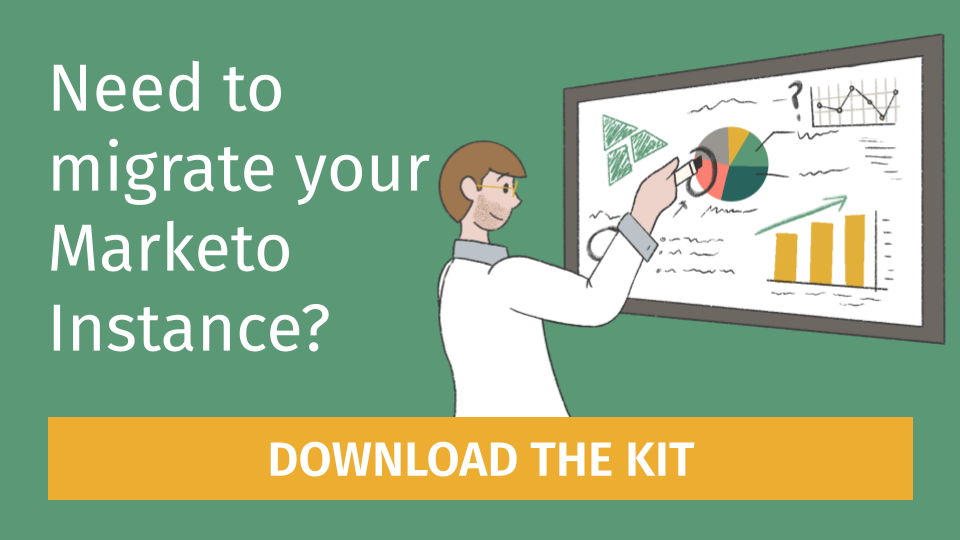Overview
In today’s digital landscape, email marketing remains a powerhouse for engaging audiences, nurturing leads, and building brand loyalty. Marketing to the healthcare industry requires one to be mindful of the Health Insurance Portability and Accountability Act (HIPAA). More specifically, it requires a deep understanding of HIPAA laws to ensure patient privacy and avoid significant penalties. In this blog, we’ll walk through some best practices for leveraging email marketing to the healthcare industry, while keeping HIPAA compliance at the forefront of your marketing efforts.
Understanding HIPAA and how it pertains to email marketing
HIPAA is a federal law that sets national standards to protect sensitive patient health information (PHI) from being disclosed without the patient’s consent or knowledge. In the context of email marketing, this means:
- Protected Health Information (PHI) is Broad: PHI includes any information that can be used to identify an individual and relates to their past, present, or future physical or mental health or condition, the provision of healthcare to the individual, or the past, present, or future payment for the provision of healthcare. This includes names, addresses, dates of birth, medical record numbers, email addresses, and even photographs.
- Explicit Consent is Non-Negotiable: You must obtain explicit, written authorization from patients before sending them any marketing emails that contain PHI or imply a patient-provider relationship. Simply collecting an email address on an intake form is not enough. This authorization should clearly state what kind of marketing communications they will receive and their right to unsubscribe.
- Encryption is Essential: Any email containing PHI, whether in the body or an attachment, must be encrypted both when not actively being used (i.e. when being stored) and in transit (when being sent). Standard email services like Gmail or Outlook are generally not HIPAA compliant. You need a HIPAA-compliant email service provider that offers end-to-end encryption.
- Business Associate Agreements (BAAs): If you use a third-party email marketing service, that service is considered a Business Associate. You must have a signed Business Associate Agreement (BAA) with them. This agreement outlines their responsibilities in protecting PHI.
- BCC is Not Enough: While BCC (blind carbon copy) can hide recipient email addresses from each other, it doesn’t protect the entire list as the messages are transmitted server-to-server. True encryption is necessary.
- No PHI in Subject Lines: Email subject lines often cannot be encrypted, so never include PHI in them.
- Careful with Testimonials/Photos: Using patient testimonials or photos in marketing emails requires separate, specific written consent from the patient, explicitly stating how their information will be used for marketing purposes.
- Training is Essential: Ensure all staff members involved in your marketing campaigns are thoroughly trained on HIPAA regulations and your practice’s policies regarding marketing communications.
Key Best Practices
Once you and your team have a clear understanding of the HIPAA compliance regulations that must be followed, you can then focus on maximizing the effectiveness of your email campaigns.
Choose a HIPAA-Compliant Email Service Provider:
Look for platforms that explicitly offer HIPAA compliance, end-to-end encryption, secure data storage, and are willing to sign a BAA.
More specifically, a HIPAA-compliant email service must have a signed BAA, legally binding the provider to protect PHI. Crucial technical safeguards include robust encryption for PHI both in transit (like Transport Layer Security) and at rest on servers, strict access controls with unique user IDs and multi-factor authentication, robust audit logging to track all PHI access, and integrity controls to prevent unauthorized alteration. On the administrative side, the provider must support the covered entity’s security management processes, including risk analysis, incident response, and policies for data retention and secure disposal, while also having strong contingency plans for data availability. Finally, physical safeguards mandate secure data centers with controlled access, workstation security, and proper management of electronic media containing PHI, ensuring the physical environment where PHI is stored is protected.
Obtain Explicit Consent:
Develop clear and comprehensive consent forms for marketing communications. Make it easy for patients to understand what they are opting into.
Segment Your Audience Strategically:
Once you have consent, segmenting your audience lists is crucial for sending relevant and personalized content. This can be based on:
Demographics: Age, location, etc.
Medical Conditions/Interests: (If explicit consent is received and no PHI is revealed). For example, a general email about diabetes management tips could go to an audience segment interested in that topic.
Patient Status: New patients (welcome series), existing patients (reminders, educational content), lapsed patients (re-engagement campaigns).
Engagement Level: Send more targeted content to highly engaged subscribers.
Craft Compelling and Informative Content:
Educational Resources: Health tips, preventive care information, explainers on common conditions, and self-management strategies.
This empowers patients to take an active role in their health. Studies show that patient education, particularly around discharge, can reduce hospital readmissions by up to 45%, leading to millions in savings annually for hospitals. Patients who clearly understand their after-hospital care instructions have over 30% less chance of readmission compared to others. Informed patients with chronic conditions are also less likely to be hospitalized and have fewer physician visits. Patient education has been shown to drastically improve medication adherence rates in chronic disease management.
Practice Updates: New services, technology, facility improvements, new providers.
Keeping patients informed fosters a sense of partnership and trust. Research indicates that patients who perceive high-quality communication with their providers are more likely to maintain treatment plans and achieve better health outcomes. This proactive communication can lead to patients feeling more valued and engaged, which, in turn, can contribute to patient retention and reduce churn – a critical factor for practice sustainability.
Event Promotions: Health fairs, webinars, community initiatives.
These create opportunities for further education and engagement, reinforcing your brand as a health resource. Community events can improve patient outreach and acquisition, and help build stronger community ties. They position your organization as an approachable, patient-centric resource, often leading to increased brand visibility and local support.
General Health News: Industry updates or relevant health trends (without disclosing patient information).
This positions your practice as a thought leader and a reliable source of information. Providing general health news helps establish your practice as a trusted authority, fostering greater patient loyalty and confidence. When patients view their provider as a go-to source for reliable health information, it can help strengthen the patient-provider relationship.
Anonymized Success Stories/Testimonials: Only with specific, written patient consent for marketing use.
Real-life examples can build substantial trust and demonstrate positive outcomes. In healthcare, where trust is critical, patient testimonials can be very powerful. Studies show that 87% of consumers read online reviews for local businesses, with healthcare being a significant category. Testimonials alleviate anxieties, build confidence in provider capabilities, and can significantly influence the decision-making process for prospective patients by offering authentic insights into positive experiences. They humanize your brand and connect with potential patients on an emotional level, and can help direct one’s decision in choosing a provider.
Personalize Your Messages:
Once you have consent and a HIPAA-compliant platform, personalization can significantly boost engagement. Use the recipient’s name in the subject line or body of email without tying to PHI. Tailor content to their general interests (e.g., if they opted into a “wellness tips” newsletter).
Include Clear CTAs:
Every email should have a clear purpose and a single, prominent CTA. Examples include:
“Schedule an Appointment”
“Learn More About Our New Service”
“Download Your Free Guide”
“Register for Our Webinar”
Optimize for Mobile:
A significant portion of emails are opened on mobile devices. Ensure your emails are responsive and look good on all screen sizes. A 2021 report provided by Litmus stated that mobile clients accounted for 41.6% of email opens, followed by webmail at 40.5%, and desktop at 16.2%. While these exact percentages might fluctuate slightly over time, the general trend of mobile leading desktop has remained.
Automate Welcome and Nurture Sequences:
Set up automated email series for new subscribers to introduce your practice and provide initial valuable content. Drip campaigns can also be used to nurture leads over time with relevant information.
Monitor and Analyze Performance:
Track key metrics like open rates, click-through rates, conversion rates, and unsubscribe rates. Use this data to refine your strategies, A/B test different subject lines or content, and continuously improve your campaigns.
Maintain a Clean Email List:
Regularly clean your email list by removing inactive subscribers, bounced addresses, and duplicates. This improves deliverability and your sender reputation.
Marketing Automation Platforms and HIPAA Compliance
Marketing automation platforms like Marketo, HubSpot, and Salesforce Marketing Cloud offer powerful features that can facilitate your healthcare marketing efforts. However, making them HIPAA compliant is not an out-of-the-box solution and requires some additional work.
Marketo (Adobe Marketo Engage)
Marketo Engage requires the following to become HIPAA compliant:
- Subscription to “Experience Cloud for Healthcare”: Adobe will only sign a Business Associate Agreement (BAA) for Marketo Engage if you subscribe to their “Experience Cloud for Healthcare” offering. This specialized version is designed with the necessary security features for HIPAA. Standard Marketo Engage plans do not qualify for a BAA.
- Business Associate Agreement (BAA): You must have a signed BAA with Adobe for the “HIPAA-Ready Services” within the Experience Cloud for Healthcare. This BAA outlines Adobe’s commitment to protecting PHI.
- Configuration for Compliance: Even with the correct subscription and BAA, you are responsible for configuring your Marketo instance to comply with HIPAA’s Security Rule. This includes:
-
- Implementing strong access controls (e.g., role-based access, multi-factor authentication).
- Setting up automatic logoff for inactive sessions.
- Ensuring data backups are performed and secured.
- Potentially configuring additional encryption controls if PHI is sent to other internal systems. Adobe provides implementation guides to assist with this.
- No PHI in Standard Marketing Emails: The HIPAA Privacy Rule generally prohibits using PHI in marketing emails unless explicitly authorized by the patient or if the disclosure falls under specific exemptions. While Marketo can handle PHI, you must ensure your usage adheres to the Privacy Rule.
- Staff Training: All personnel using Marketo Engage must be trained on HIPAA regulations and how to use the platform in a compliant manner, especially regarding the Privacy Rule and not disclosing PHI without proper authorization.
HubSpot
HubSpot has made significant strides in offering HIPAA-compliant features, particularly for Enterprise customers:
- Sensitive Data Settings and BAA: HubSpot now offers HIPAA-compliant features through its “Sensitive Data” settings. To access these, you must:
-
- Enable Sensitive Data Settings: In your HubSpot account’s Privacy & Consent settings, enable “Sensitive Data” and accept the related terms and conditions. Only Super Admins can do this.
- Agree to HIPAA-Specific Terms: When enabling sensitive data, you’ll need to confirm that you are a HIPAA-covered entity or business associate and select “Health/Medical Data” as a type of sensitive data.
- Sign the Business Associate Agreement (BAA): HubSpot will sign a BAA with covered entities for the use of its HIPAA-compliant features. This is a crucial legal step.
- Creating PHI Properties: Once sensitive data is enabled, you can create custom properties in HubSpot to store PHI. These properties are automatically encrypted with application-layer encryption.
- Field-Level Permissions: HubSpot provides advanced field-level permissions, allowing administrators to restrict access to sensitive PHI fields to only authorized users or teams within your organization. Regular review of these permissions is essential.
- Audit Logs: Utilize HubSpot’s comprehensive audit log feature to track all actions related to sensitive data properties. Regular review of these logs is vital for compliance and security monitoring.
- Limitations to know about:
-
- AI Tools: HubSpot’s AI features (e.g., conversation summaries, AI assistants) are generally not part of the HIPAA-compliant feature set and should not be used with PHI.
- Personalization Tokens: It’s not always possible to use data from HIPAA-compliant PHI properties as personalization tokens in emails. This means you might need to be more general in your email personalization or rely on non-PHI data for personalization.
- Specific Tools: Some HubSpot tools (e.g., sandboxes, certain chatbot functionalities) may not support sensitive data.
- Secure File Uploads: Ensure any files containing PHI are uploaded using HubSpot’s secure methods, which offer additional layers of encryption and restricted access.
Salesforce Marketing Cloud
Salesforce Marketing Cloud’s HIPAA compliance is more nuanced and often requires careful implementation:
- Business Associate Agreement (BAA): Salesforce will sign a BAA for some of its products and services, including certain aspects of Marketing Cloud, but not for all of them by default. It’s critical to explicitly confirm with your Salesforce account representative which specific Marketing Cloud features are covered under their BAA. The BAA typically covers “HIPAA Covered Services.”
- Configuration and Restrictions: Even if a BAA is in place, there are significant restrictions and responsibilities on the user:
-
- No PHI in Standard Email Sends: The general recommendation is not to send PHI directly in standard email communications from Salesforce Marketing Cloud unless specific, advanced measures are in place (like tokenized sending, see below). The primary risk is the storage of sent emails or other data on the MC side that might not be fully secured for PHI.
- Tokenized Sending: Salesforce Marketing Cloud offers “Tokenized Sending” capabilities, which is designed to allow the inclusion of PHI in emails without storing the PHI on Marketing Cloud’s servers. This is a complex implementation that requires careful consideration and likely involves integrating with a secure, HIPAA-compliant data source (like a Health Cloud instance or EHR).
- Data Segmentation and Anonymization: Implement robust data segmentation to ensure only necessary, non-PHI data is brought into Marketing Cloud for segmentation and targeting. Anonymize or pseudonymize data wherever possible.
- Field Level Encryption (FLE) / Salesforce Shield: For data stored within other Salesforce clouds (like Health Cloud or Sales Cloud) that might integrate with Marketing Cloud, using features like Salesforce Shield (a premium security feature set) and Field Level Encryption (FLE) can enhance compliance for data at rest. Marketing Cloud may also have its own “Shield” or advanced audit trail features.
- Consent Management: Utilize Salesforce’s consent management tools and data models to ensure explicit consent for all marketing activities and to respect customer preferences.
- Limited Analytics: Be aware that some analytics reporting features within Salesforce Marketing Cloud may not be HIPAA compliant for PHI, limiting your ability to analyze PHI-related marketing performance directly within the platform.
- Integration with HIPAA-Compliant Systems: For healthcare organizations, the most common and safest approach for using Salesforce Marketing Cloud is to integrate it with a separate, fully HIPAA-compliant Electronic Health Record (EHR) or Health Cloud system. PHI is managed and stored in the EHR, and only non-PHI or tokenized data is pushed to Salesforce Marketing Cloud for marketing activities.
- Regular Audits: Regularly audit how PHI is being handled across all integrated Salesforce products, including Marketing Cloud.
Takeaways for your marketing ops teams
- Prioritize Security First: Don’t assume any marketing automation platform is HIPAA compliant out-of-the-box. Always investigate their specific healthcare offerings, compliance features, and willingness to sign a comprehensive BAA.
- Legal Review is Essential: Have all marketing consent forms, email templates, and especially your BAAs and platform configurations reviewed by legal counsel specializing in HIPAA.
- Shared Responsibility Model: Understand that compliance is a shared responsibility. While your chosen platform provides the secure infrastructure, you are responsible for how you configure and use the platform, including what data you store and how you communicate with your audiences.
- Ongoing Training: Regularly train your marketing team on HIPAA regulations and internal protocols for handling patient data, especially concerning the specific limitations and compliant uses of your chosen marketing automation platform.
- Data Governance: Establish clear policies for data collection, storage, and usage within your email marketing efforts, ensuring that no PHI enters non-compliant systems or is used in non-compliant ways.
- Leverage Compliance Features: Actively use the HIPAA-specific features offered by your platform, such as sensitive data settings, field-level encryption, access controls, and audit logs.
Conclusion
Successful email marketing in healthcare demands strict adherence to HIPAA regulations. This requires explicit patient consent, robust encryption for all Protected Health Information (PHI), and formal Business Associate Agreements (BAAs) with third-party service providers. While platforms like Marketo, HubSpot, and Salesforce Marketing Cloud offer powerful features, achieving HIPAA compliance with them requires specific subscriptions, careful configuration, and an understanding of their limitations. Ultimately, a shared responsibility model, ongoing staff training, and rigorous data governance are crucial for ethical and effective email marketing that prioritizes patient privacy.







